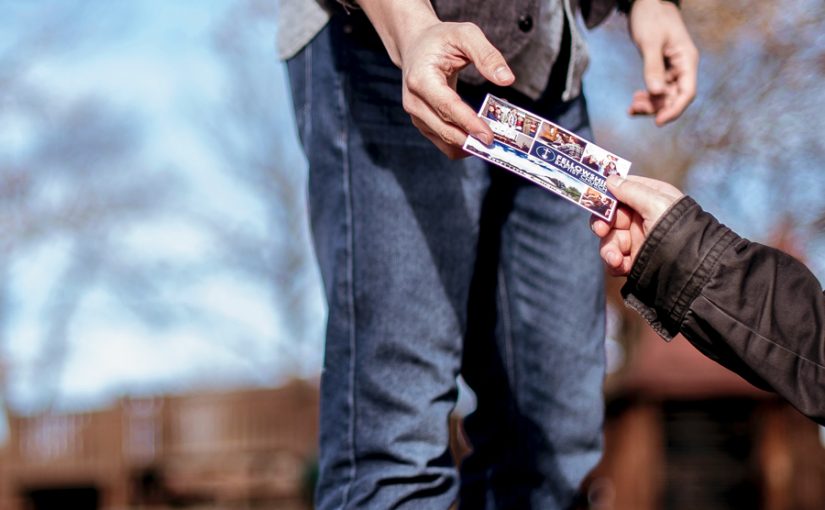A homily for the Second Sunday in Ordinary Time, January 14, 2024
1 Sm 3:3b-10, 19, 1 Cor 6:13c-15a, 17-20, Jn 1:35-42
Back in 2000, when Haley Joel Osment was younger and cuter, he starred in “Pay It Forward,” a movie based on the novel by Catherine Ryan Hyde. It’s a change-the-world story based on the notion that, after someone does you a good deed you couldn’t have done for yourself, you must do a similarly large favor for three people, preferably strangers. And, in doing so, you must explain to the mitzvahs’ recipients that they are now obliged to pay it forward as well.
This, in theory if not in practice, would add up to an exponential growth in kindness and justice that could overspread the world.
And even though the movie received mixed-to-negative reviews, the notion — and the phrase — etched a place in our social consciousness.
So who is calling us believers to pay it forward every day of our lives? And what is the “it” we’re passing along to family, friends and strangers?
We are called by our Almighty Creator, as Samuel was. We are called by Jesus, as the Apostles and other disciples were. Because we too are disciples. We are called and empowered by the Spirit, because we are children of God.
Simple enough.
The “it,” though: not so simple.
We start with what we received, the favor we couldn’t have done for ourselves. And that “it” is us.
Us. We. Ourselves. The God-guided accident of birth that gave us our lives, our genders, our eye colors, our height, weight, intellect and blood type. Us.
The “it” we received includes our homes, our families, the eras in which we live. “It” includes our talents and skills and athletic and creative prowess … every aspect of who we are, all created in the image and likeness of God and yet indisputably unique.
Whoever we are, wherever we are, whenever we are, we have received many gifts, and we ourselves are gifts to the world. We must be. God wants us to pay it forward, as the prophet Jeremiah reminds us:
For I know well the plans I have in mind for you, plans for your welfare and not for woe, so as to give you a future of hope.
So, yes, there’s a road map.
So, yes, there’s a guide to lead us along this often twisty trail.
And for this pilgrimage we call life, we need to make a list and start packing, just as we would for a campout in the mountains or a vacation down the Shore. We need to inventory who we are and what we can offer. Those are the essentials; swimsuits and flip-flops are optional.
Are we gregarious enough to organize a clothing drive or a food drive? Can we put together a letter-writing campaign and persuade dozens or even hundreds of people to ignore writer’s cramps to persuade civic leaders to preserve our fragile planet or bring shelter and dignity to people whom society steps on?
Are we better at gentler, one-on-one interactions, or even anonymous efforts that spring from our individual talents? Is what we pay forward the gift of presence?
As we inventory ourselves, we can’t forget to check our eyes and ears.
That’s crucial, because first and foremost we need to see or hear those in need, so we can reach out to them.
But do we notice the favors our sisters and brothers do for us every day? Because every day, someone somewhere indeed does something, some “it” to uplift us. Someone somewhere is reaching out to us.
Someone somewhere, through the grace of God, is giving us a random act of kindness.
And we are called to pay it forward.
In doing so, we are answering the Almighty’s call for us to spread faith, hope and love.
In doing so, we are answering the Almighty’s call for us to share good news. The Good News.
The Good News we all need.
